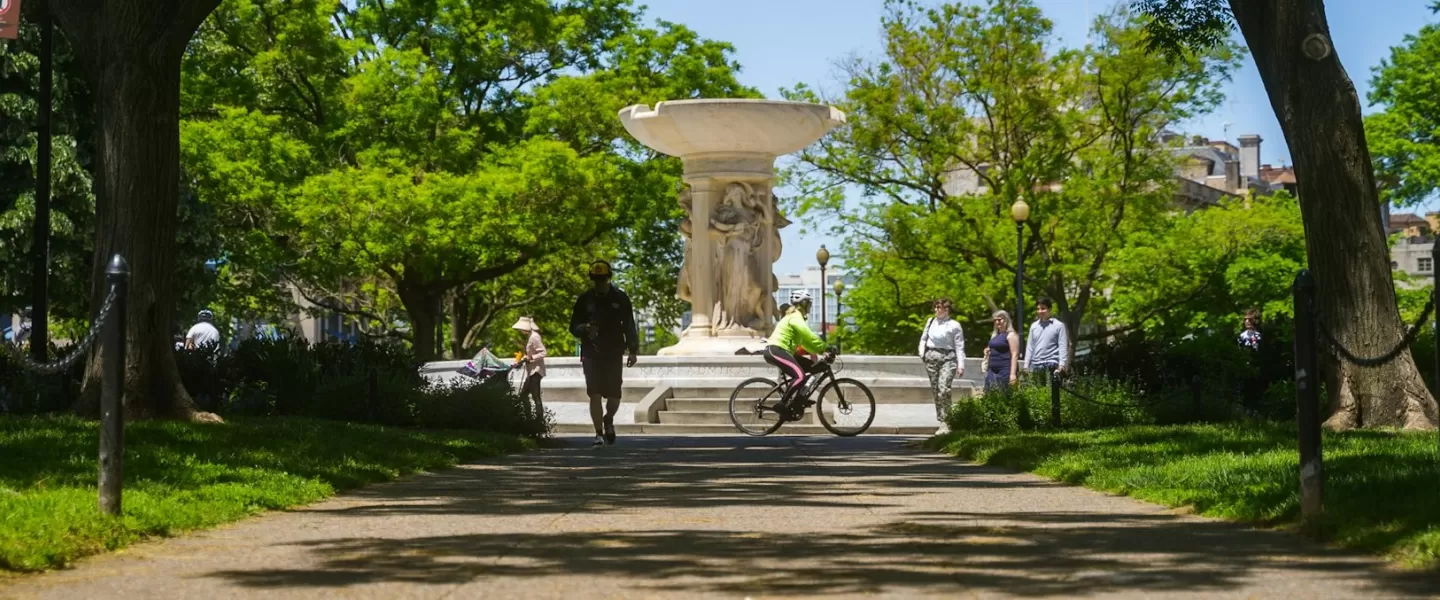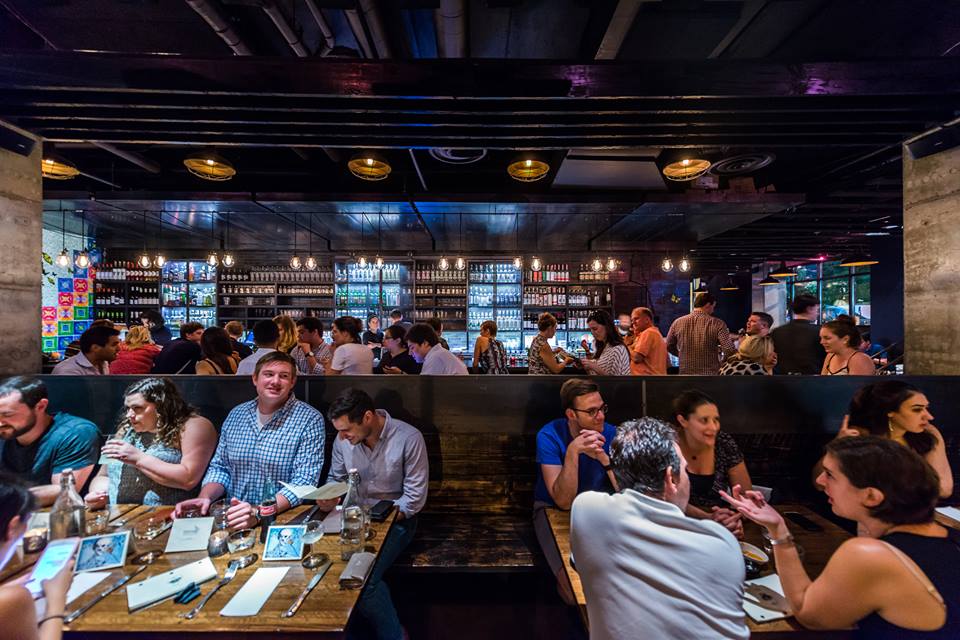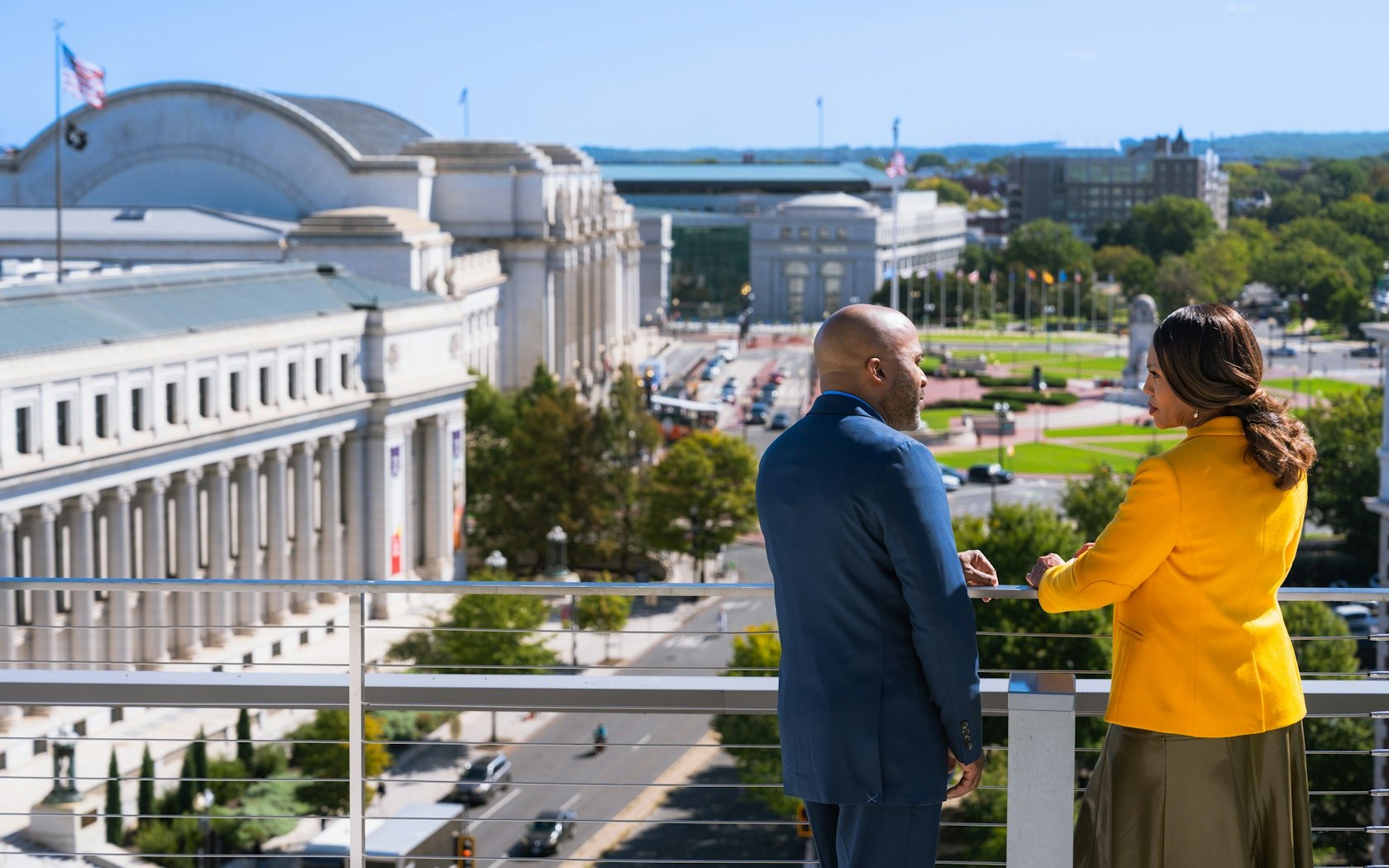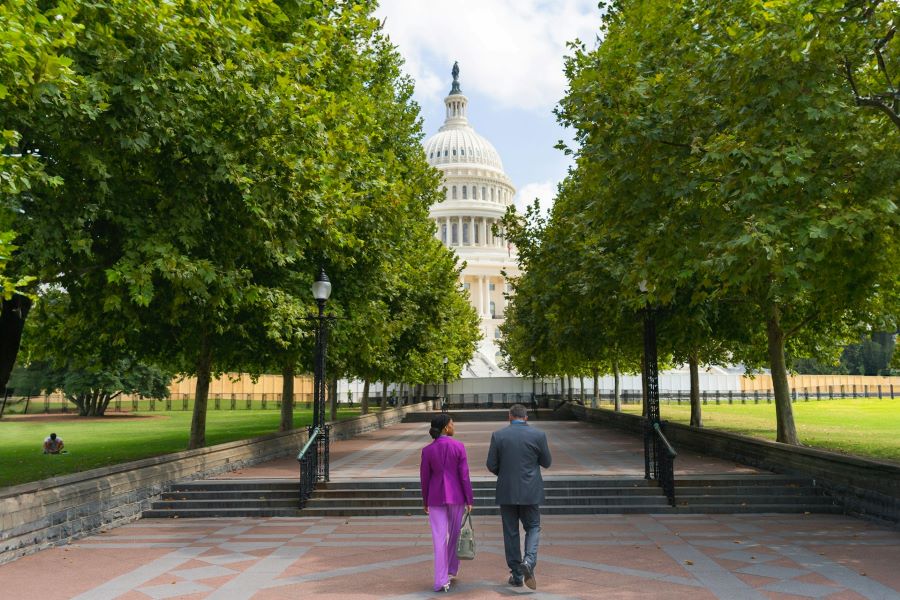
Washington, DC is a top choice for meeting planners looking to leverage the city’s sustainable transport options – including public transportation, walking and cycling – to eliminate shuttles for a meeting or convention.
With over 30 hotels within walking distance of the Walter E. Washington Convention Center, the ease of commuting in the nation's capital is a key benefit for business travelers. When planning your next meeting, consider these options that will save you the added expense of a shuttle or ride-share.
01
Walking

DC is the third most walkable city in the United States, according to Smart Growth America, so if you can head to your meeting by foot. This is the most inexpensive method of commuting that also happens to be sustainable and great for your health. The American Geophysical Union (AGU) hosted 28,000 attendees in DC without using a shuttle.
"We selected Washington, DC in large part because the city is so walkable and has excellent public transportation,” said Lauren Parr, former vice president of meetings, American Geophysical Union. "AGU never shuttles for large meetings as it’s a carbon and financial expenditure that we don’t wish to incur, and we had excellent feedback from our attendees on what a great walking city DC is. DC is a great choice for any planner looking to leverage the local transportation options and eliminate shuttles."
02
Biking
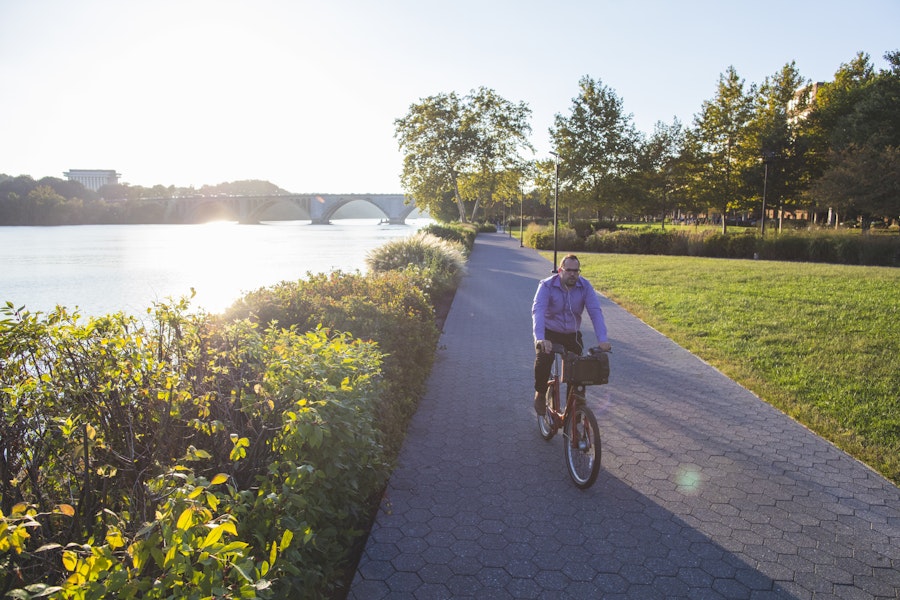
Washington, DC was the first city in North America to launch a bikeshare system, which now has more than 6,000 bikes and 700 stations. Capital Bikeshare is one of the most popular ways to commute. A single ride only cost a $1 unlock fee plus 5 cents for each minute of use. Pick up an electric bike at any station for a $1 unlock fee and 15 cents per minute of use. It’s easy to get and return a bike at one of hundreds of stations located near the convention center, along the National Mall and at Metro entrances. Download the free Capital Bikeshare app to find the nearest bikeshare stations and get up-to-the-minute information about available bikes and docks.
03
Electric Scooter
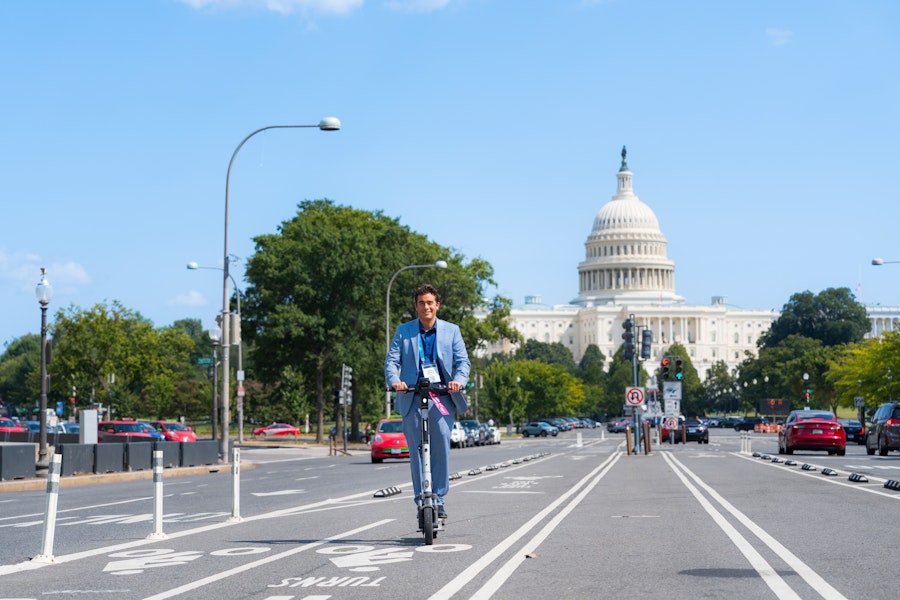
Hop on an e-scooter or e-bike from Lime, Spin, Veo and new-to-DC brand Hopp. These companies together have 9,200 e-scooters and more than 3,700 e-bikes around the city, so they are never hard to find. Prices vary, but they are a great way to get to your next meeting or to sight-see in between sessions.
04
Metrorail
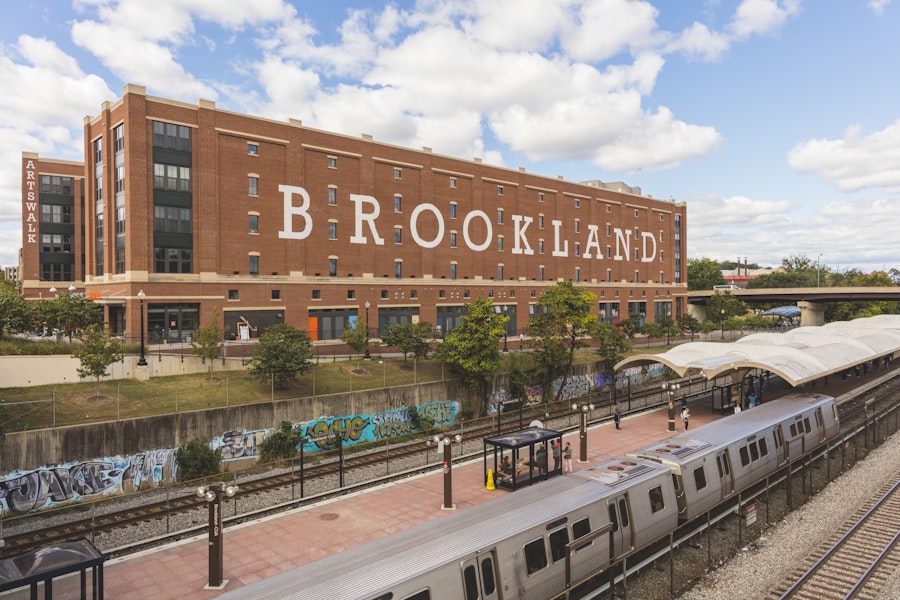
Home to the second-largest Metrorail system in the U.S., Washington, DC is known for its efficient and clean operations. Washington Metropolitan Area Transit Authority (WMATA) manages the Washington, DC Metrorail and Metrobus systems. Locals and visitors alike utilize SmarTrip® cards – permanent, rechargeable cards used to pay Metrorail and Metrobus system fares. In May 2025, Metrorail will begin accepting credit cards for fares. The convention center has a dedicated Metro station serviced by the yellow and green lines, and many hotels are conveniently located near Metro stations or bus routes. Airport access is also easy with Metro stops at both Ronald Reagan Washington National Airport (DCA) and Washington Dulles International Airport (IAD) that bring you directly into the city.
05
Metrobus
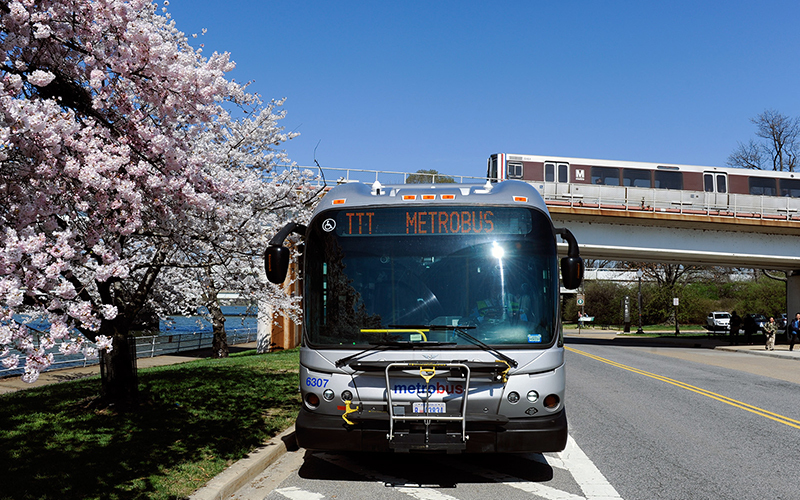
DC’s fleet has more than 1,400 buses operated by WMATA that run on a version of alternative fuel that is less harmful to the environment, including compressed natural gas (CNG) advanced technology diesel fuel and ultra-low sulfur diesel fuel. As an alternative to traditional diesel fuel, buses that run on CNG produce roughly 45 percent less hydrocarbons, making them an attractive option for sustainable meetings. Additionally, WMATA has committed to transitioning its entire fleet to zero-emission vehicles by 2042.

